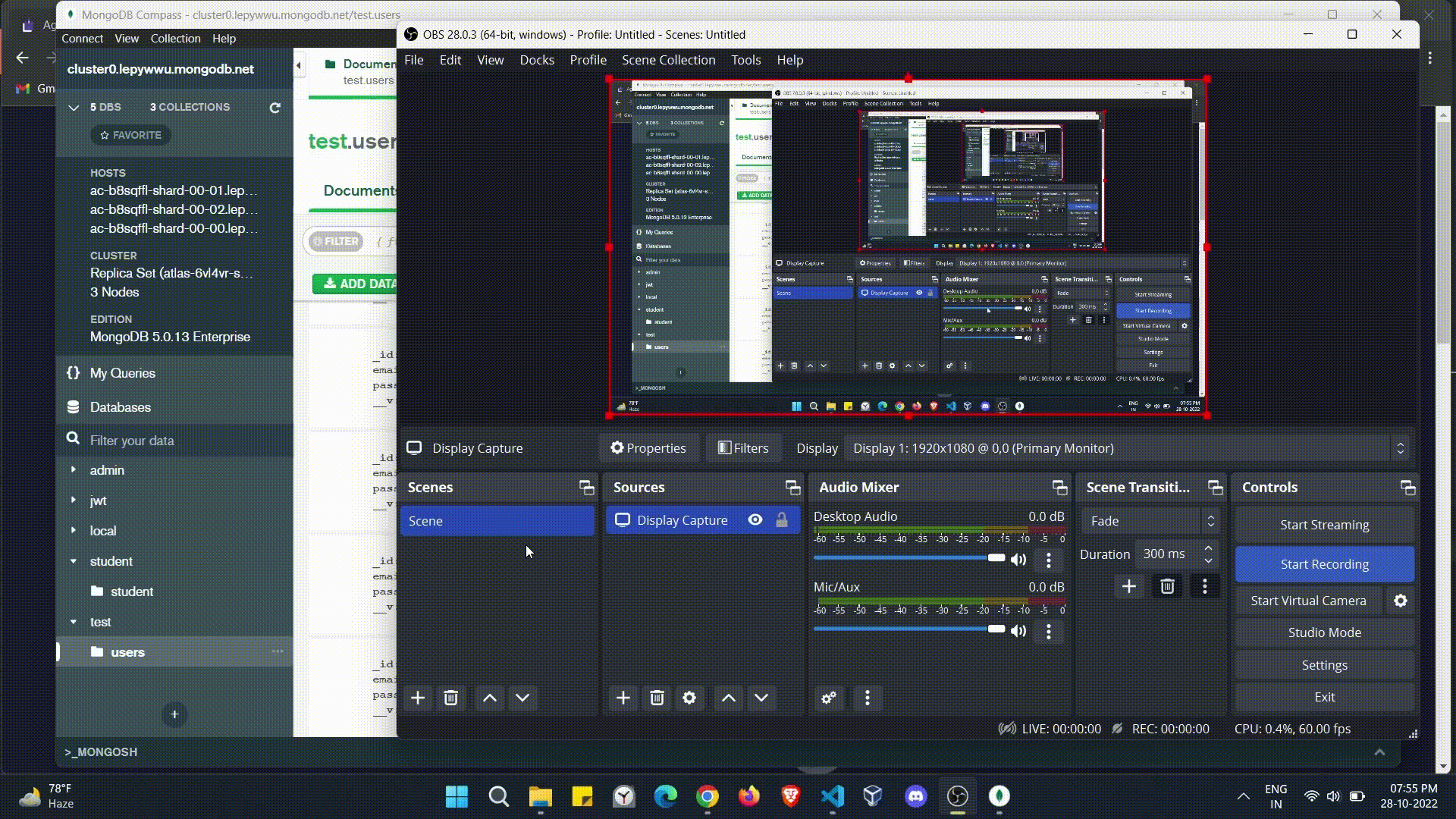Agilty is a task management tool that allows you to plan, organise, and prioritise all of your tasks so that you can complete them in the shortest amount of time possible.
- Modern UI/UX-inspired responsive pages
- Express.js for connecting frontend to backend
- Login and Register Using MongoDB using JSON Web Token keep user logged in using stored cookie
- Use of safe login so the only logged in used can view
\workspacecontains - Kanban board's ability to add and remove cards and lists from local storage.
- User/Team Member Remove and Add
-
Just go on official Node.js website and download the installer. Also, be sure to have
gitavailable in your PATH,npmmight need it (You can find git here). -
You can install nodejs and npm easily with apt install, just run the following commands.
$ sudo apt install nodejs $ sudo apt install npm -
You can find more information about the installation on the official Node.js website and the official NPM website.
If the installation was successful, you should be able to run the following command.
$ node --version
v8.11.3
$ npm --version
6.1.0
If you need to update npm, you can make it using npm! Cool right? After running the following command, just open again the command line and be happy.
$ npm install npm -g
Firstly, we need to install all the dependencies in the backend and frontend folders
For Frontend
cd frontend
yarn
For Backend
cd backend
yarn
Since npm gives some errors in this project, I recommend using yarn as the package manager.
Secondly, we need add .env file in backend folder in below format
MONGO_URI="<Your_MongoDB_URI>"
FRONTEND_ORIGIN="http://localhost:3000"
JWT_TOKEN="<your_jwt_token>"
Thirdly, run in local environment
For Frontend
yarn start
For Backend
yarn start
Runs the app in the development mode.\
- Open http://localhost:3000 to view it in your browser.
- Backend running at http://localhost:4000 to test Login and Register API.
The page will reload when you make changes.
You may also see any lint errors in the console.
OR,
This video shows this project live.
Frontend Folder structure
.
├── public # Manifest, favicon and HTML file so you can tweak it.
├── src
│ ├── Assets # all the assets i.e. files other then js
│ ├── pages # Components specific to each section called in App.js
│ ├── Form
│ ├── Home
│ ├── KanbanBoard
│ ├── Utils
| └── Component Regarding Kanban Board
│ ├── ProductLayout
│ ├── User
| └── Workspace
│ ├── Styles # All Styles Files in respective folder compiled by scss
│ ├── Form
│ ├── Home
│ ├── KanbanBoard
│ ├── ProductLayout
│ ├── Utils
│ ├── Workspace
| └── main.scss
│ ├── App.js
│ └── index.js
├── yarn.lock
└── package.json
Backend Folder structure
.
├── controller
├── middlewares
├── model
├── routes
├── .env
├── index.js
├── yarn.lock
└── package.json
- Better UI at Dashboard, Kanban, Teams.
- REST API for functions in Kanban, Dashboard, Teams.
- User Respective Data to be shown after login.
This project is licensed under the MIT License - see the LICENSE file for details.
I am a passionate programmer with a keen interest in Full Stack Web Development, Cloud and DevOps Emerging Technologies, and attempting to solve problems with software.










